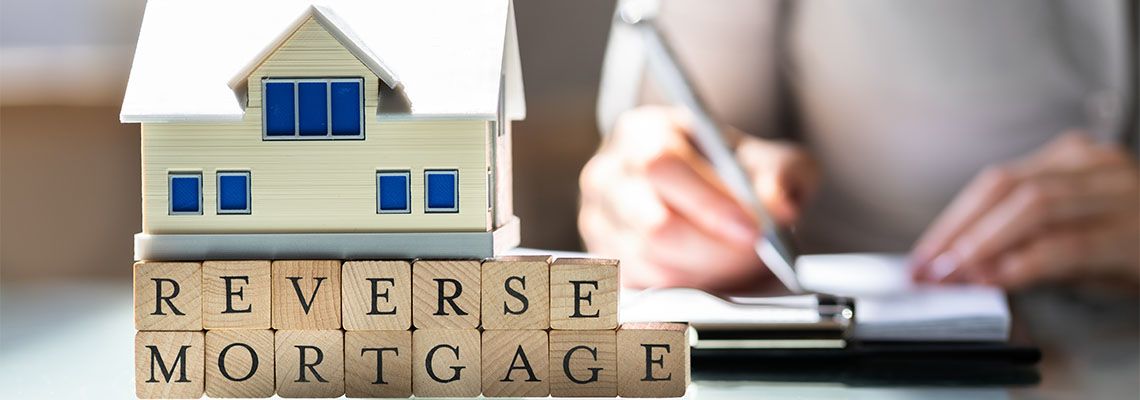
What Happens With a Reverse Mortgage After Death?
The death of a loved one can unleash a cascade of anguish and grief. The time following a loved one’s death can be fraught with uncertainty and questions as the family is trying to figure out what to do with everything the deceased person left behind. One of the questions the family may have is, “What happens if the decedent had a reverse mortgage on their house?” and “What rights do heirs have when inheriting a reverse mortgage?”
A reverse mortgage can complicate things for the heirs. If your loved one with a reverse mortgage passed away, it’s important reach out to legal counsel to understand the potential legal implications. StachlerHarmon Attorneys at Law can explain how to handle a reverse mortgage after a loved one’s death. We have an office in Dayton, Ohio, and also serve the surrounding area, including Clark County, Butler County, Greene County, Preble County, Miamisburg, Warren, and the rest of the state.
What Is a Reverse Mortgage?
A reverse mortgage allows homeowners to use their home as security for a loan when borrowing money. However, the homeowner has no obligation to make monthly mortgage payments with a reverse mortgage loan. The loan is paid back when the homeowner no longer lives in the home. Essentially, the homeowner is borrowing against the equity in their home.
Homeowners with a reverse mortgage are not required to pay back the loan as long as the property is used as their primary residence. The payment is required when any of the following occurs:
The homeowner moves out
The homeowner sells the property to buy a new house
The homeowner dies and leaves no co-signer
While a reverse mortgage can be an additional stream of income for senior homeowners, it can cause potential problems for whoever inherits the property after the homeowner’s death. When you inherit a home with a reverse mortgage, you would be required to pay the full loan balance, regardless of whether you want to use the property as your primary residence or not. Additionally, you would typically be required to pay any interest that has capitalized over the duration of the loan term.
What Are Your Options if You Inherit a Home with a Reverse Mortgage?
Generally speaking, when a loved one dies and leaves behind a home with a reverse mortgage, the person who inherits has three options to deal with it:
Sell the house and pay off the mortgage. The most common option is to sell the house and use the proceeds to pay off the mortgage. If the value of the home is higher than the loan balance, you could use the remaining amount for other expenses. If the loan balance exceeds the equity value, though, this may not be the most appropriate option from the financial perspective.
Pay off the loan balance on your own. You can pay off the loan balance on your own to keep the property. In most cases, it would require you to finance the loan’s repayment. However, you must make sure that you meet the lending requirements to qualify for a new mortgage. This option may not be for those who do not qualify for a new mortgage and cannot otherwise pay off the loan balance.
Transfer the deed back to the lender. Another option to consider involves deeding the property back to the lender. This option is usually used when the person who inherits a property with a reverse mortgage wants to avoid foreclosure. After transferring the deed, the lender becomes the owner of the property, which means heirs are no longer financially responsible for it.
After you inherit a home with a reverse mortgage, you will most likely receive a letter or phone call from the loan servicer asking you what you intend to do with the property. Reach out to your lawyer for guidance at any stage of this process.
Your Rights When Inheriting a Reverse Mortgage
If your loved one died and left behind a home with a reverse mortgage, that property can quickly become your biggest headache. However, you have certain rights during this time. You deserve to take the time and space you need to grieve and mourn your loss. Typically, when a homeowner passes away, the lender will send a letter to the homeowner’s heirs notifying them that the loan is due. Under the law, heirs have 30 days from receiving the due notice to decide what they want to do to satisfy the debt.
When heirs decide to sell the home or pay off the loan, though, they will have an additional six months to complete the transaction. The lender may also provide an extension when doing so is necessary to finalize the deal. Again, it’s important to consult with an estate planning and probate attorney to understand all the rules and deadlines after inheriting a reverse mortgage.
Understanding Your Rights
If you inherited a home with a reverse mortgage, it can be difficult to know what to do and what your rights are, especially during a time of grief. At StachlerHarmon Attorneys at Law, we help heirs whose loved one left behind a reverse mortgage understand their options and make informed decisions. Reach out to our office for a no-cost initial consultation.
